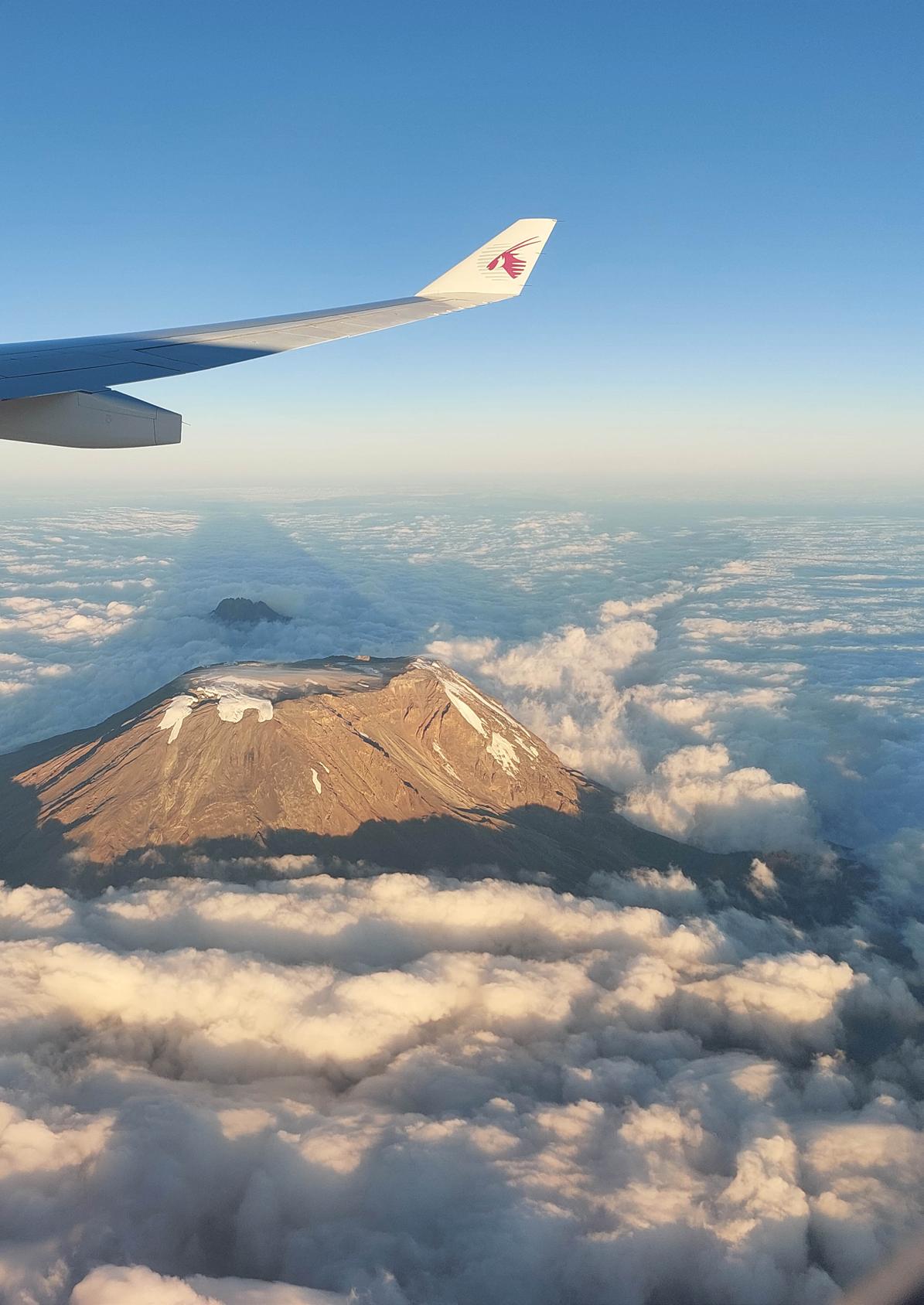CLIMATE POLICY





To ensure The Camps International Group (‘CI’, ‘Camps’) is doing everything within its power to reduce our climate impact. This extends to all areas of our global operation as well as all clients, communities and partners.
Reducing overall carbon emissions, slowing global warming and preventing irreversible climate change is probably the greatest and most important challenge that the human race has ever faced.
It is estimated that the global travel industry is currently responsible for 8% of CO2 emissions. The vast majority of those emissions are from people in the richest countries of the world.

We recognise that we all need to act now to achieve sustainability, and this document details Camps’ policy on all things Carbon and Climate related. It links to our Ethics, Welfare and Sustainability Policy, our Carbon Action Plan and our Real World Studies programme - which focuses on education and responsible travel practices. While we have been involved in a range of relevant activities for many years, linked to the UN Sustainable Development Goals, we know that we need to do more and to keep improving.
We do not apologise that this is all a little complicated, as the problem and its solutions are far from straightforward. We will never claim that we have done everything and sit back on our laurels. This is a constant battle for reduction and revolution in all aspects of how we operate. We will not “Greenwash” and make outlandish claims in order to tick boxes or get a few extra sales: that does not help to combat the global problem that we face.
Source: Sustainable Travel international

It is an inescapable fact that flying produces a significant amount of CO2 emissions. Almost all of Camps’ destinations require a long-haul flight to get to them. So how do we justify this against our desire to reduce carbon emissions and combat climate change?
Most people do not believe that the global population needs to abandon flying completely. The question is more about the number of flights, including long-haul flights, that any individual takes; and everyone ensuring that their journeys are either essential or worthwhile.
A Camps expedition is an opportunity for each of our travellers to make a positive impact. Our travellers work on projects that genuinely improve the lives of people in rural communities, sustain culture and protect the environment. Camps expeditions fulfil the requirement of being worthwhile. Further, we insist that every traveller considers their own impacts, and, through our Responsible Traveller Training programme, we support them in understanding their personal obligations. Together, both before and during travel, we make the expedition sustainable, and we make it count.
The countries in which we work are heavily reliant upon tourism income and often have fragile ecologies. Within that context, the expeditions themselves, their content and all of our actions must align to ensure that there is a net positive result from our activities.


Paid carbon offsets are fraught with issues and often don’t stand up to scrutiny. The results of countless investigations have shown that many of these projects are not properly planned or maintained; there is a lag on any benefit they bring, and they frequently fail to absorb the amount of carbon they claim to. Through offsetting, companies can claim to be “carbon neutral” and continue to emit CO2 into the atmosphere today, while investing in schemes that will only start improving our world decades into the future, if at all. By that time, it will be too late to save our planet.
Some offsets can work, in fact we undertake our own carbon offsetting and have been doing so for many years. The vast majority of paid offset programmes involve planting trees and we have planted more than a million trees ourselves through our many reforestation and habitat restoration projects around the world – most of our travellers plant a handful of trees no matter where they go in the world. It is our position that our funds are better channelled through our own projects, planting trees and conserving woodland, than delegating this activity to a third party. This way we know the monies are 100% directed to trees in the ground, and not wasted on administration fees. It also means that we can ensure that the projects are properly managed to maximise their benefit over the long term.
Relying on offset is to fail to change behaviour. Carbon offset programmes may represent a tax on flying, but immediate carbon reduction, alongside efficient and credible reforestation, is vital if we are to meet the target of keeping global temperature increases below 1.5 degrees.

We believe that the most important and effective way to reduce our carbon footprint is for people to make lifelong changes to the way they live - to reduce their carbon footprint today, not in 40 years’ time, and develop lifelong habits. We are in the very fortunate position of having thousands of young people travel with us every year, and their experiences at our camps are often life changing. With us, those young people are able to see the effects of climate change first-hand and gain an understanding of the impacts that these changes are having on rural communities and in sensitive environments.
We have now developed a formal process to help our travellers with this understanding, with the aim of assisting them in achieving a deep knowledge, backed-up by first-hand experience, which will see them become ambassadors for change. Our Responsible Traveller Training modules ask each and every one of our travellers to challenge themselves to alter their behaviour, before, during and after their expedition, and take on responsibility for their emissions and actions. We feel this is probably the greatest contribution we can make to help combat this global problem and it forms a large part of our policy.

Further, we are changing our own actions and behaviours; in the administrative offices of the company, in our products and in our camps around the world. We see this as a combined effort, with us working alongside our travellers and providers. These actions and behaviours form the basis of our Carbon Action Plan, which outlines in detail all existing and planned activities. This plan will demonstrate our commitment to deliver effective action against climate change.

The consensus of scientific opinion on how best to plan to reduce our global carbon emissions, led by the United Nations and the Science Based Targets Initiative (SBTi), has moved on from the misleading terms “carbon neutral” and “carbon positive”, both of which can only be achieved through offsetting, and now urges companies to concentrate their efforts on creating a credible Net Zero Plan. This plan aims for net zero carbon emission by 2050, at the latest, and to halve all emissions by 2030.

Our overarching Climate Policy, backed up by the detailed Carbon Action Plan, can be divided into 5 key areas as follows:

We see this as potentially the most important of all our responsibilities. We must educate, influence, and effect positive change in all travellers and all other people, companies and communities with whom we come into contact, creating a ripple effect. Key activities include the following:
1. We have developed a robust and realistic Responsible Traveller Training pre-departure education module, ensuring all travellers complete it prior to travel.
By using real life figures (actual flight and itinerary carbon quantities), we teach each traveller how to “compensate” for their trip by changing their behaviour, hopefully resulting in long-term change. The effect of this influence could be bigger than all other company activities combined.
2. Ensure elements of the Responsible Traveller module are “experienced” during the expedition.

We reinforce the educational material with real life experience, ensuring travellers witness the effects of climate change first hand in-country wherever possible. There are constant links within the expedition to the Responsible Traveller Training as well as encouragement through modelling behaviours such as reduced meat consumption, local purchasing, reduced energy consumption. This further reinforces the need for travellers to change their behaviour for the longer-term.
3. Ensure we educate and influence our partners, service providers and communities.
We have resolved to influence everyone we come into contact with, working towards ensuring that anyone we work with also follows our suggested behaviours and guidelines. We run an annual staff training and awareness session and share our Carbon Policy widely. We apply pressure to service providers and communities to adapt their behaviour where necessary. In order to fully engage all Camps staff, we have formed an internal Climate Action Team who promote behaviour change, and share ideas and successes, in order to embed the ethos at a grass roots level within the company and also demonstrate small changes can be effective.

1. Measure all global office & operations carbon footprint.
Engage with an organisation in order to establish a standard methodology and set of assumptions to apply across the whole Group. Starting with UK main office and then applying to all global offices and hubs, we will measure our global carbon output in order to establish a baseline position.

We have calculated the emissions for each of our itineraries and this carbon footprint per person is shared with clients at the moment of booking with us. Often, this figure (excluding flights) will be less than their footprint would be at home so this helps the traveller with their own footprint calculation, and it can be a useful tool to illustrate behaviour changes.
This enables travellers to understand the impact of their trip, reinforces the Responsible Traveller Training educational module information whilst also allowing them to plan their own compensation activities.
1. Protect ecosystems and support biodiversity.
We continue to invest in projects across all our operations to restore and protect ecosystems, support nature’s ability to draw down carbon as well as safeguarding biodiversity, food security and water supply.

2. Work with nature and ensure sustainable operations.
We ensure that our operations and in-country partners work in balance with nature, developing and maintaining the most sustainable practices for the benefit of host communities and the environment.


1. Take all reasonable measures to reduce our carbon footprint across the whole Group.
In all company activities it is becoming the norm that not only do we consider the financial impact of any activity, but we also consider very carefully the potential carbon footprint.
2. Establish and maintain a set of “Company Behaviours”.


Many of these behaviours are already in place and comprise mandatory and preferred activities for all aspects of the business. These behaviours will also encourage employees to make personal changes to their behaviour. This will be maintained and shared throughout the company by the Climate Action Team through internal communications. All employees are to understand that it is everyone’s responsibility to take action and make or suggest changes.
3. Develop our Net Zero Plan.
Our Net Zero Plan will outline in detail how we will reduce our emissions over time to reach the goals of halving our emissions by 2030 and becoming net zero by 2050.
1. Provide an annual climate/carbon report for whole Group.
In order to be held accountable for our activities and to drive further behavioural change, we have subscribed to Compare Your Footprint, an in-depth carbon reporting solution aimed at businesses and recommended by the WWF. This allows us to create detailed reports of all carbon produced by our business activities and to monitor this over time. Compare Your Footprint also works with us to analyse the carbon emissions that we are responsible for and to identify carbon reduction strategies.
Our emissions report will be published annually along with an update on all our carbon reduction activities and the impact they have hadand this will be compared to the goals we have set in our Net Zero Plan to show how we are doing in achieving that goal. All locations and departments within the company will be expected to assist in the production of this report.
We acknowledge that we are already doing much of the above activities, although many are uncertified or recognised. We are excited to launch the student Responsible Traveller Training modules to start educating everyone who travels with us immediately. We are in the process of measuring our outputs and quantifying a starting position. We have to work harder to reduce our footprint starting now. In order to add a commitment to these activities, we have joined the “Tourism Declares Climate Emergency” movement. The movement asks all members to make the following Declaration:
We declare our shared commitment to unite all stakeholders in transforming tourism to deliver effective climate action.
We support the global commitment to halve emissions by 2030 and reach Net Zero as soon as possible before 2050.
We will consistently align our actions with the latest scientific recommendations, so as to ensure our approach remains consistent with a rise of no more than 1.5°C above pre-industrial levels by 2100.
As a signatory, we commit to:
Deliver a climate action plan within 12 months of signing.
Report publicly both progress against interim and long-term targets, as well as the actions being taken, at least annually.
Align our plan with five shared pathways (measure, decarbonise, regenerate, collaborate, finance) to ensure climate action is consistent across all of tourism.
Share information on activities connected to Tourism Declares and/or the Glasgow Declaration among contacts and networks.
Work in a collaborative and constructive spirit with other members of Tourism Declares and/or signatories of the Glasgow Declaration.


